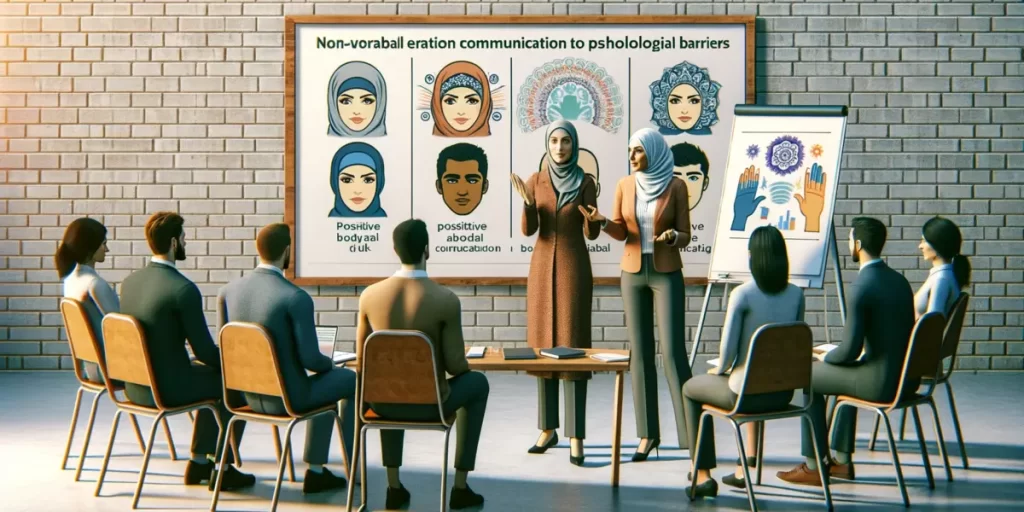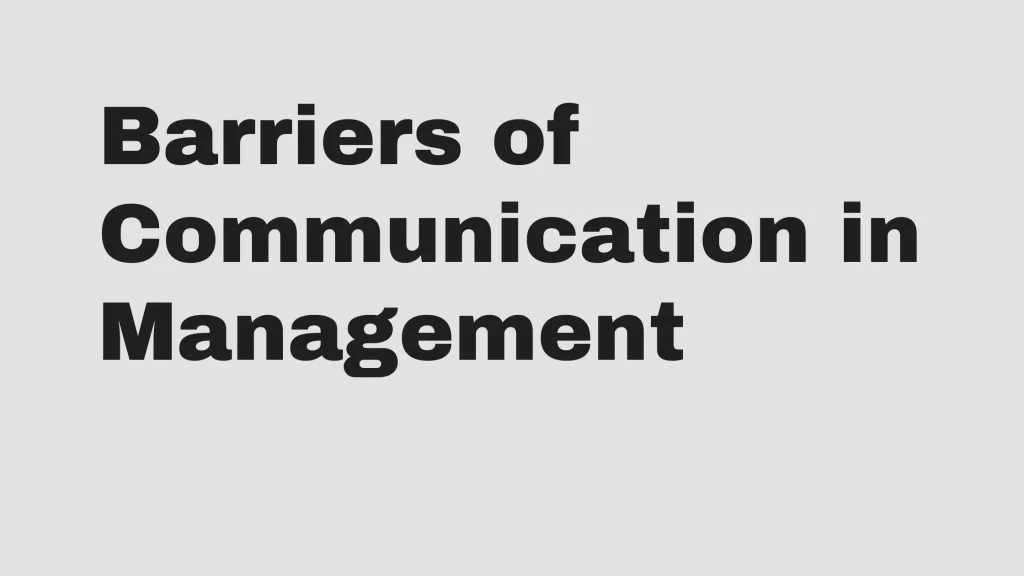To avoid psychological barriers in communication, we must be mindful of our biases and preconceived notions. One way to do this is by practicing active listening, where we truly focus on what the other person is saying without interrupting or jumping to conclusions. Being aware of our emotions and how they may impact our communication is also helpful. Taking a moment to reflect on our feelings before responding can prevent misinterpretations or misunderstandings. Openness and willingness to consider alternative perspectives can create a more inclusive and effective communication environment.
Contents
How to Avoid Psychological Barriers in Communication
In the Broadway of life, where each of us holds distinct roles, communication is our script. It is a thread that connects diverse minds, fostering understanding and empathy. However, psychological barriers often creep into this delicate process, distorting conversations and hampering effective communication. Now more than ever, we must learn to avoid these impediments.
Firstly, what are psychological barriers? Essentially, they refer to mental states or conditions that limit one’s communication ability. This might include stress or anxiety, preconceived notions about the other person, negative emotions such as anger or jealousy, and fear of being judged or misunderstood.

So, how do we navigate through these formidable hindrances?
Active Listening
Fully engage in what others are saying without preparing responses in your head while they’re still talking. Empathize with their point of view instead of stubbornly sticking to your perspective. Seek clarification if something isn’t clear. We foster an atmosphere conducive to sincere dialogues by engaging in active listening.
Cultivate Emotional Intelligence
Emotional intelligence involves recognizing your feelings and those of others in any given situation and managing them tactfully. Understanding emotions can help curtail abrupt reactions from anger or frustration that may clutter effective communication.
Work on Your Self-esteem
Low self-esteem can lead to overthinking—a significant commitment-killer in communication—and fear of judgment might hold you back from expressing yourself fully. By embracing our imperfections and growing confident in who we are, we break free from any negativity holding us back.
Escape Stereotypes
Stereotyping is a pitfall when communicating as it places individuals into boxes before genuinely understanding them. To avoid this trap, see everyone you interact with as unique rather than affiliating them with specific groups based on appearance or origins; treat every interaction as a blank canvas.

Mindfulness
Mindfulness involves being present at the moment rather than letting your mind wander into the past or future. Practicing mindfulness while communicating helps stay focused on the dialogue, enables clearer understanding, and prevents misinterpretation.
Improve Non-verbal Communication
Non-verbal cues such as body language, eye contact, facial expressions, and touch play an integral role in communication. Sharpening non-verbal communication aids in accurately conveying messages without distortion.
Self-Reflect Regularly
Take time to self-reflect and understand your barriers, triggers, and blind spots. It’s essential to look inward to improve our outward interactions.
Realizing that everyone has their own unique perspective based on personal experiences is the first step towards breaking down psychological barriers. This newfound understanding, paired with self-awareness, helps navigate through often nebulous territories of human communications easily.
The journey isn’t easy—it requires patience and practice—but the rewards are immense:
- Forming deeper connections with others
- Improving team dynamics at work
- Fostering healthier relationships
By implementing these strategies, you can significantly reduce psychological barriers in communication and foster better understanding between yourself and others.
Boko Ducky has over 10 years of experience in helping individuals and organizations improve their communication skills.



